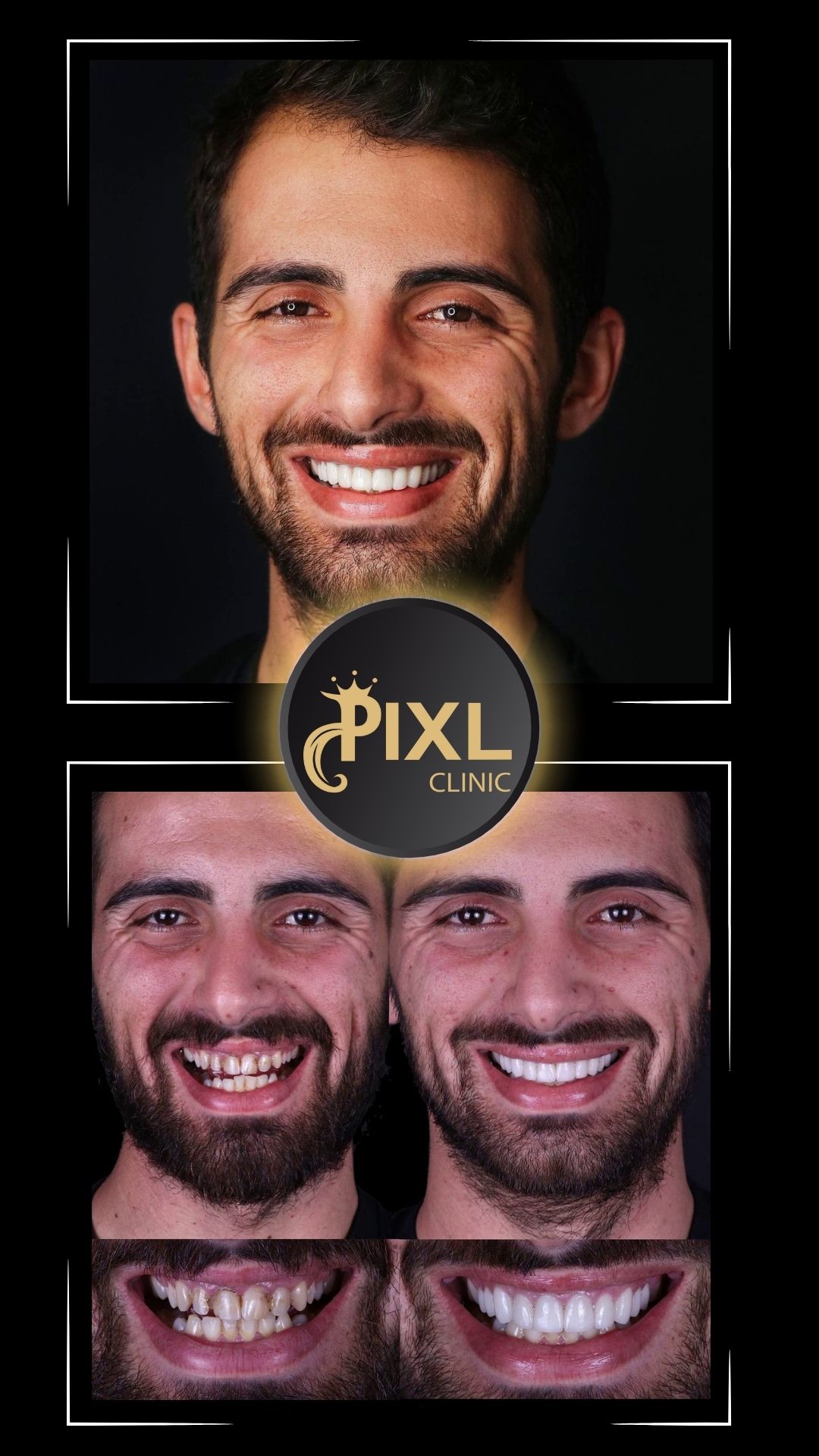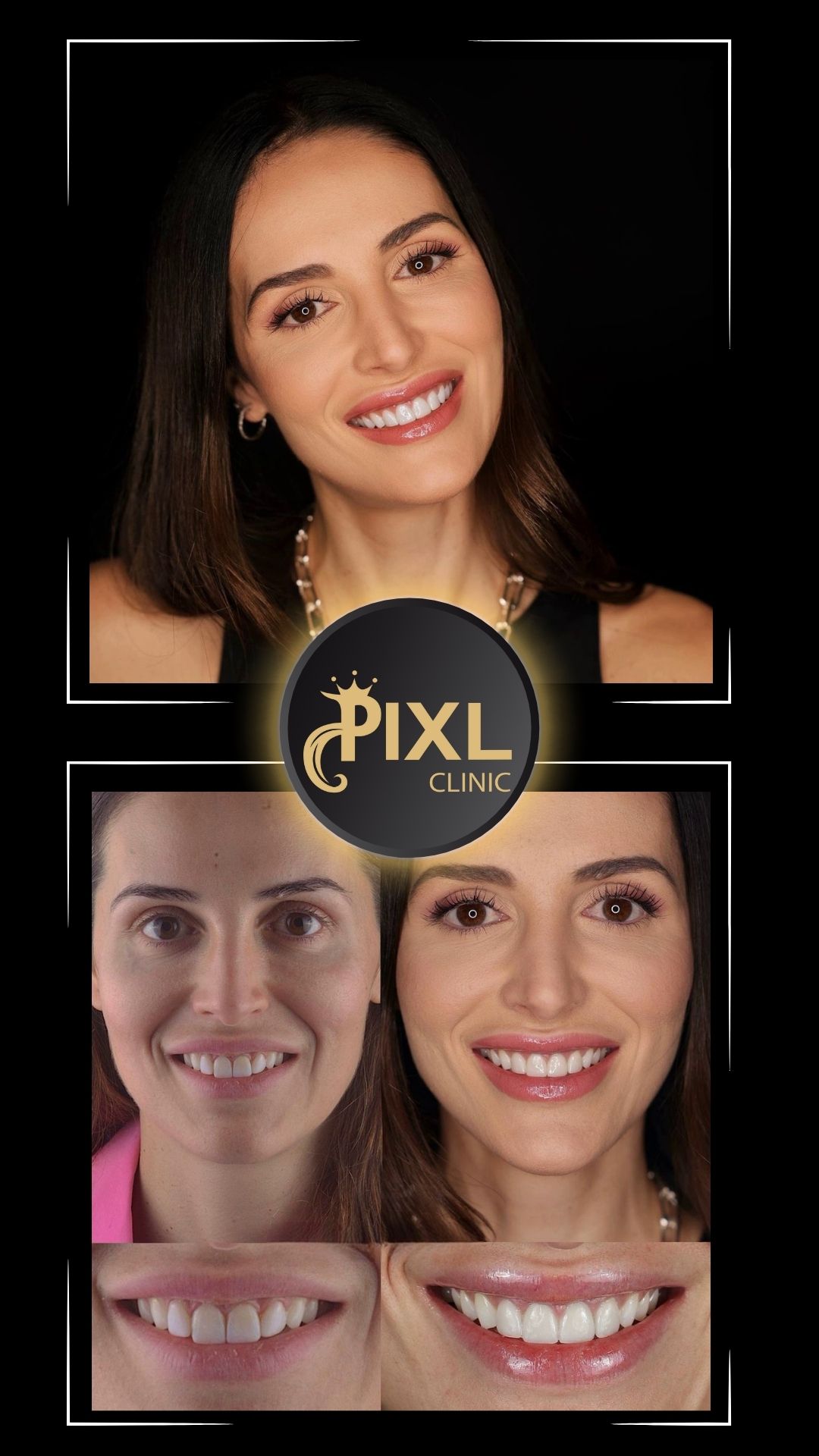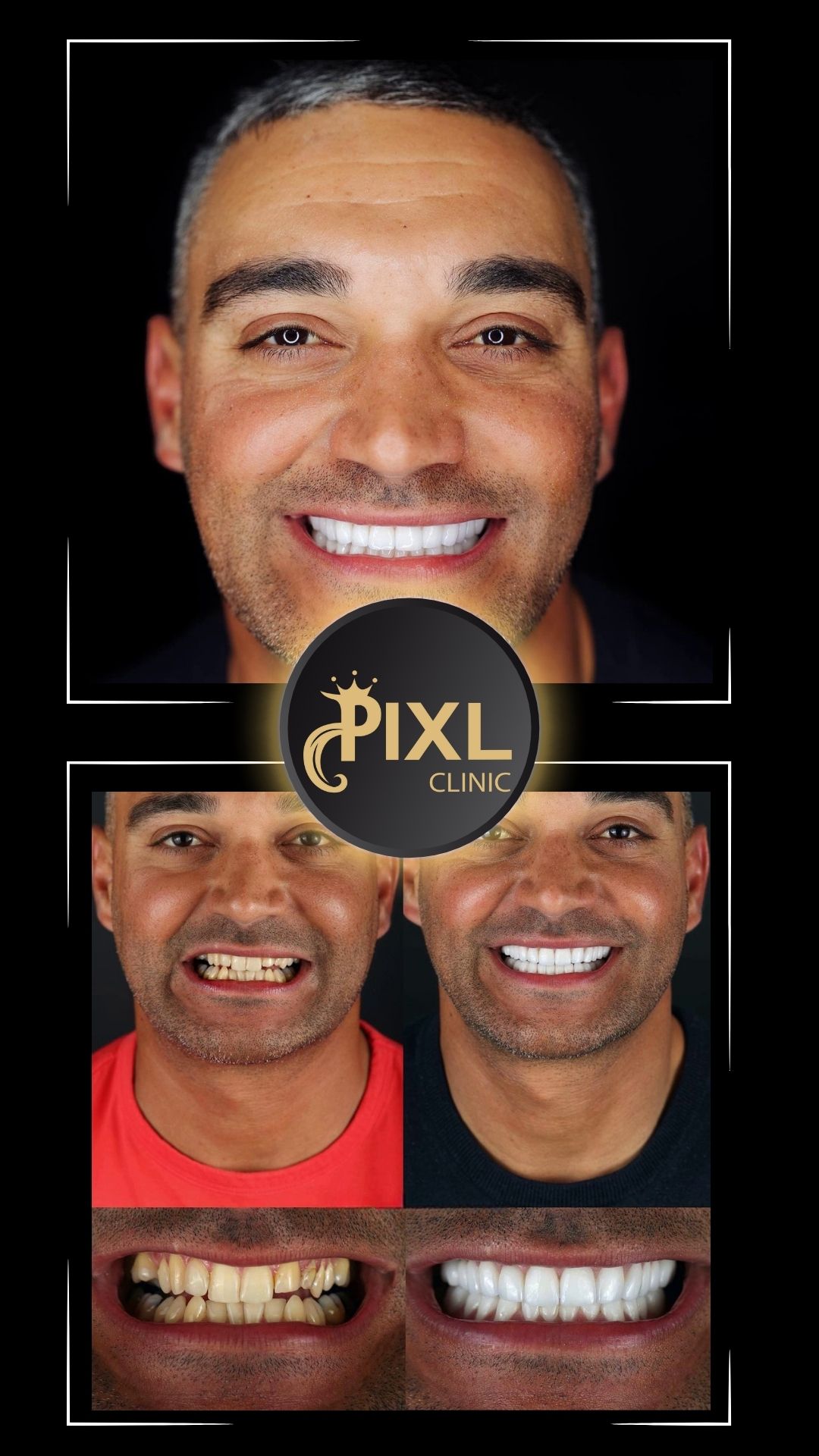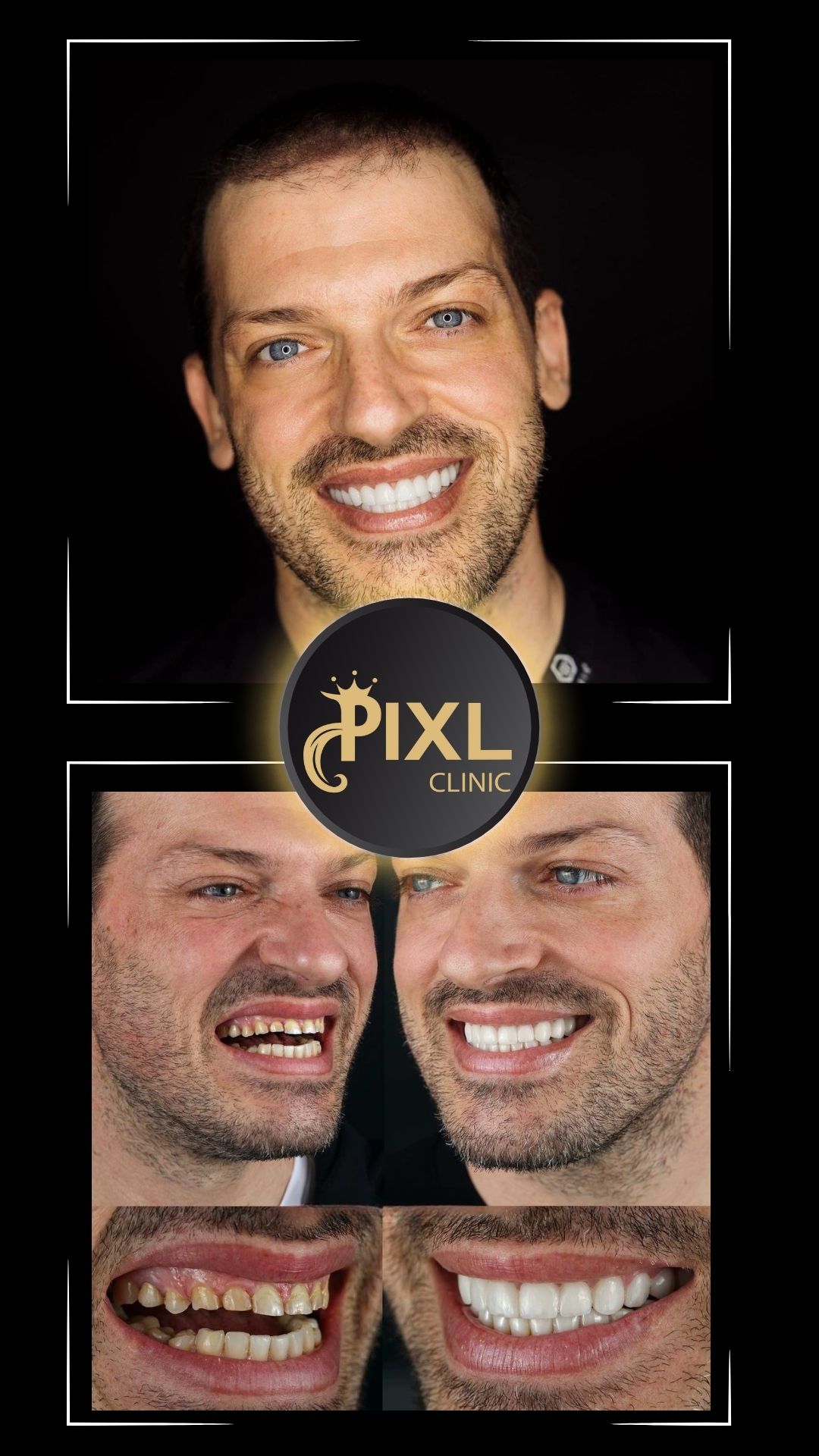Dental Implants for Front Teeth: Costs, Benefits, and What to Expect
Dental implants have become a revolutionary solution for missing or damaged teeth, providing a permanent and natural-looking alternative to bridges and dentures. Replacing a front tooth, in particular, is a delicate procedure that not only restores function but also impacts the aesthetics of your smile. If you’re considering a dental implant for a front tooth, here’s a detailed guide covering costs, benefits, and the process.
What Are Dental Implants?
A dental implant is a titanium post that acts as a replacement for a natural tooth root. It is surgically placed into the jawbone and serves as the foundation for a crown, bridge, or denture. For front teeth, the crown is carefully designed to match the size, shape, and color of your natural teeth, ensuring a seamless appearance.

Benefits of Dental Implants for Front Teeth
Natural Appearance
- Front tooth implants are custom-made to blend with your surrounding teeth, restoring your natural smile and facial structure.
Durability and Longevity
- With proper care, dental implants can last a lifetime, making them a cost-effective solution in the long run.
Improved Functionality
- Implants allow you to bite, chew, and speak without worrying about shifting or discomfort.
Bone Health Preservation
- The implant stimulates the jawbone, preventing bone loss and maintaining facial structure over time.
Confidence Boost
- A front tooth implant restores your confidence, allowing you to smile without hesitation.
Costs of Front Tooth Implants
The cost of a front tooth implant varies depending on several factors, including location, materials used, and the complexity of the procedure. Here’s a breakdown:
Initial Consultation
- Costs: $100–$200 (often covered by insurance or deducted from the total cost if you proceed with treatment).
Diagnostic Imaging
- X-rays or CT scans are required to assess bone density and structure.
- Costs: $100–$200.
Implant Surgery
- The placement of the titanium post.
- Costs: $400–$1000.
Abutment and Crown
- The abutment connects the implant to the crown, which is the visible part of the tooth.
- Costs: $200–$300.
Additional Procedures
- Bone grafting or sinus lift (if necessary) may add $300–$800 to the total cost.
Total Cost
- On average, a single front tooth implant can range from $1,000 to $1,500.
Insurance and Financing Options:
- While dental implants may not be fully covered by insurance, many providers offer partial coverage for diagnostic procedures or crowns. Financing options, such as payment plans or medical credit cards, can help manage costs.
The Implant Process: What to Expect
1. Initial Consultation
- Your dentist or oral surgeon will examine your teeth, gums, and jawbone to determine if you’re a candidate for an implant.
2. Preparatory Procedures
- If your jawbone lacks sufficient density, bone grafting or other preparatory surgeries may be required.
3. Implant Placement
- The titanium post is surgically inserted into the jawbone under local anesthesia. Healing, known as osseointegration, takes 3–6 months as the implant fuses with the bone.
4. Abutment Placement
- Once healing is complete, an abutment is attached to the implant. This acts as the connector between the implant and the crown.
5. Crown Placement
- A custom-made crown is secured onto the abutment, completing the restoration.
Recovery and Aftercare
Post-Surgery Care
- Expect mild swelling and discomfort for a few days, which can be managed with over-the-counter pain relievers.
Oral Hygiene
- Regular brushing, flossing, and dental checkups are essential to maintain your implant.
Diet Adjustments
- Stick to soft foods immediately after surgery, gradually returning to your regular diet as healing progresses.
Lifestyle Considerations
- Avoid smoking and excessive alcohol consumption, as they can hinder healing and affect the longevity of the implant.
Are You a Candidate for a Front Tooth Implant?
While dental implants are a viable option for many, certain factors may affect eligibility:
- Adequate bone density.
- Good oral and overall health.
- Non-smoker or willingness to quit during the healing process.
Alternatives to Front Tooth Implants
If a dental implant isn’t suitable for you, other options include:
- Dental Bridges: A prosthetic tooth anchored to adjacent teeth.
- Partial Dentures: A removable appliance that replaces one or more missing teeth.
- Resin-Bonded Bridges: Also known as “Maryland bridges,” these are less invasive and bonded to the back of adjacent teeth.
Dental implants for front teeth are an investment in your smile, oral health, and confidence. While the initial costs may seem high, the long-term benefits far outweigh the expense. By understanding the process, benefits, and potential costs, you can make an informed decision and work with your dental provider to achieve the best outcome.
Ready to restore your smile? Consult with a dental professional to explore your options and take the first step toward a radiant, healthy smile!
FAQs About Dental Implants for Front Teeth
What is a dental implant?
A dental implant is a titanium post surgically placed into the jawbone to act as a replacement for a missing tooth root. It supports a crown that mimics the appearance and function of a natural tooth.
How long does the dental implant process take?
The entire process can take anywhere from 3 to 9 months, depending on factors like bone health, healing time, and whether additional procedures (e.g., bone grafting) are needed.
Are dental implants painful?
The procedure is typically performed under local anesthesia, so you won’t feel pain during the surgery. Post-operative discomfort is usually mild and manageable with over-the-counter pain relievers.
Are dental implants covered by insurance?
Many insurance plans cover part of the procedure, such as diagnostic imaging or the crown, but not the full cost of the implant. Check with your provider and explore financing options if needed.
What happens if I don’t have enough bone for an implant?
If your jawbone is insufficient, procedures like bone grafting or a sinus lift may be performed to build up the bone structure, ensuring a stable foundation for the implant.
How long do dental implants last?
With proper care, dental implants can last a lifetime. The crown, however, may need replacement every 10–15 years due to normal wear and tear.
Can anyone get a dental implant?
Candidates need healthy gums, sufficient bone density, and good overall health. Certain conditions, like uncontrolled diabetes or heavy smoking, may affect eligibility.
What are the risks of getting a dental implant?
While rare, potential risks include infection, implant failure, or damage to surrounding teeth or nerves. Working with an experienced dental professional minimizes these risks.
How do I care for a dental implant?
Caring for an implant involves:
- Regular brushing and flossing.
- Routine dental checkups.
- Avoiding habits like smoking or chewing hard objects.
Will the implant look natural?
Yes! The crown is custom-designed to match the color, shape, and size of your surrounding teeth, ensuring a seamless and natural appearance.
Can I get a dental implant immediately after losing a tooth?
In some cases, an implant can be placed immediately after tooth extraction. However, if there’s significant bone loss or infection, the dentist may recommend waiting until the area heals.
What are the alternatives to a dental implant for a front tooth?
Alternatives include:
- Dental bridges.
- Partial dentures.
- Resin-bonded (Maryland) bridges.
Can I eat normally with a dental implant?
Yes, once the implant is fully healed and the crown is placed, you can eat most foods without issue. Avoid hard foods immediately after surgery to protect the implant site.
Is the implant process different for a front tooth?
Yes, because front teeth are more visible, extra care is taken to match the implant’s aesthetics to your natural teeth. The procedure may also involve more advanced techniques for optimal results.
































